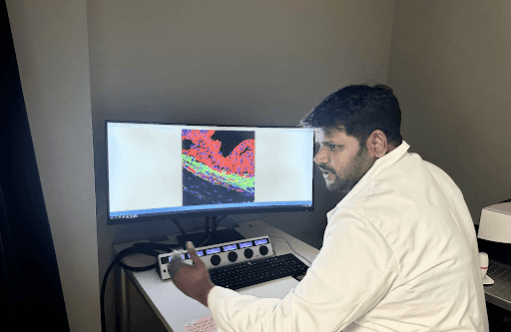
A team of researchers at the University of California, Irvine (UCI) School of Medicine, has made great progress in the fight against glaucoma. Untreated glaucoma is the second leading cause of irreversible vision loss globally.
The UCI research team's work in genome editing technologies and small molecule therapeutics has revamped the concept of glaucoma treatment, offering hope to millions of patients worldwide.
The Vision for Genome Editing Technologies
The research team at UCI is developing advanced genome editing tools, such as CRISPR-Cas9, to target glaucoma-associated genes. Precisely modifying the DNA sequences responsible for the disease, these technologies seek to act as a one-time cure for glaucoma, unlike current conventional treatments that are not always long-term viable solutions.
Spearheading the research at UCI is Dr. Balasankara Reddy Kaipa, a dedicated scientist with a diverse background in molecular diagnostics, vaccine manufacturing, and preclinical toxicology. His multidisciplinary expertise has been instrumental in advancing glaucoma research and developing suitable treatments.
Dr. Kaipa's previous experience includes the development of diagnostic tools for infectious diseases at major biotechnology firms, as well as in the development of COVID-19 vaccines in the pharmaceutical sector. His well-rounded background has equipped him with the skills necessary for tackling the latest glaucoma research.
"The power of genome editing can correct the genetic defects that cause glaucoma," Dr. Kaipa explains. "In this way, we cure the very root cause of the disease. We can one day eliminate the need for lifelong medication or invasive surgeries."
The research has already led to the filing of three patents at UCI, covering small molecule therapies, lipid nanoparticle-mediated delivery of RNA therapeutics, and engineered virus-like particles for delivering precision genome editors. These breakthroughs have garnered interest from mainstream medical practices in a relatively short amount of time.
Advancing Clinical Trials and FDA Approval
With the success of his research, Dr. Kaipa and Zode are now focusing on advancing their efforts toward clinical trials and FDA approval. They anticipate significant progress in the coming years, including the development of small molecule therapies, mRNA-based treatments, and VLP-based genome editing for glaucoma.
Translating research findings into tangible benefits for glaucoma patients is the ultimate goal. Collaborating with industry partners and regulatory agencies, the research team aims to bring these vision-saving therapies to market as quickly and safely as possible, offering hope to the millions of people affected by glaucoma worldwide.
A View of Glaucoma
In the United States alone, more than 3 million Americans are living with glaucoma, 2.7 million of whom (aged 40 and older) are affected by its most common form, open-angle glaucoma.
Current glaucoma treatments focus on lowering intraocular pressure through medication, laser therapy, or surgery. While these methods can slow the progression of the disease, they do not address the underlying genetic causes and may require lifelong management.
The research conducted by Dr. Kaipa and Zode at UCI takes glaucoma treatment on an entirely new and more effective path by targeting the root cause of the disease. Developing gene therapies and small molecule therapeutics, they aim to provide a one-time cure for glaucoma, eliminating the need for ongoing treatment and improving patient outcomes.
The success of this research will have a profound effect on the lives of millions of people worldwide who are affected by glaucoma. Preventing vision loss and preserving quality of life, these treatments promise to reduce the global burden of the disease and offer hope to patients and their families.
With the research already progressing towards clinical trials and FDA approval, the lives of countless individuals hangs in the balance. Fortunately, being backed by dedicated researchers like Dr. Kaipa and Zode, the future of glaucoma treatment looks brighter than ever before.















